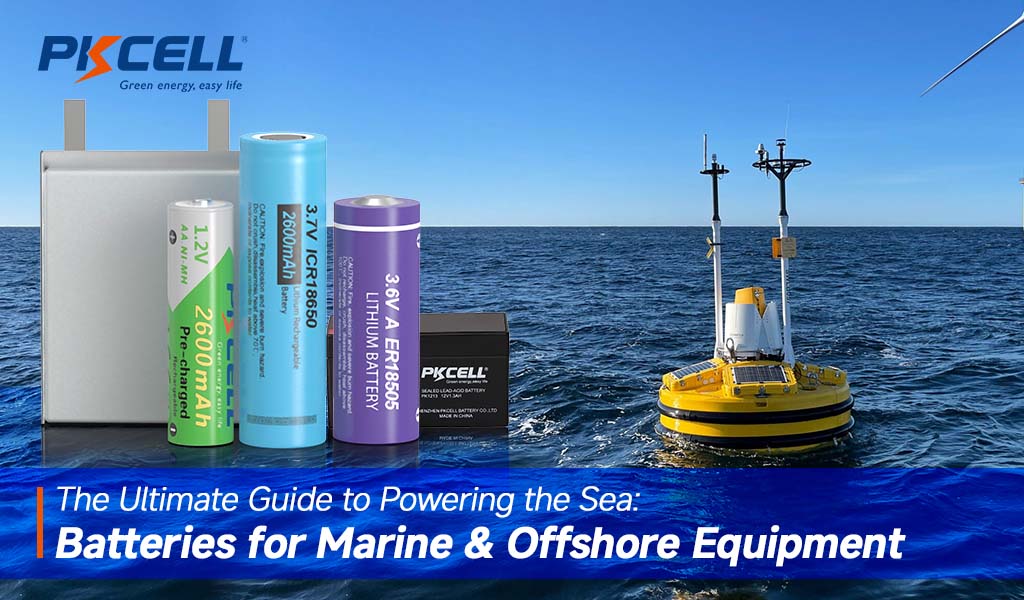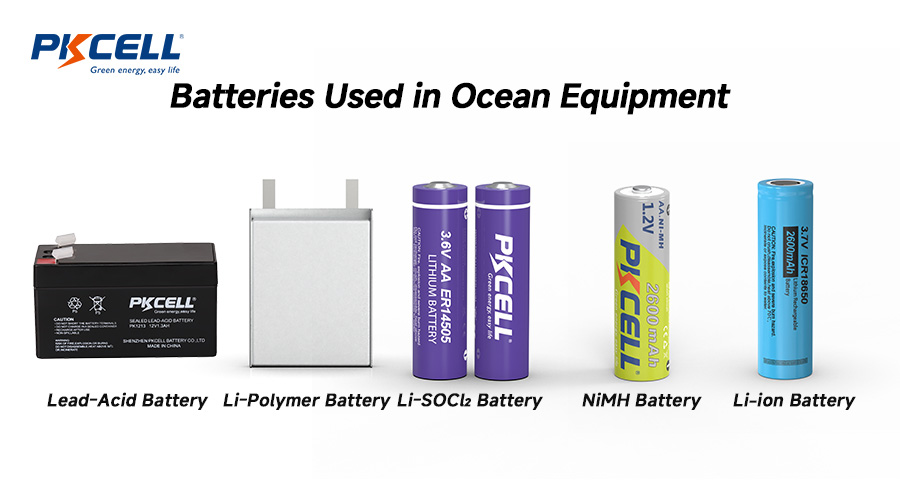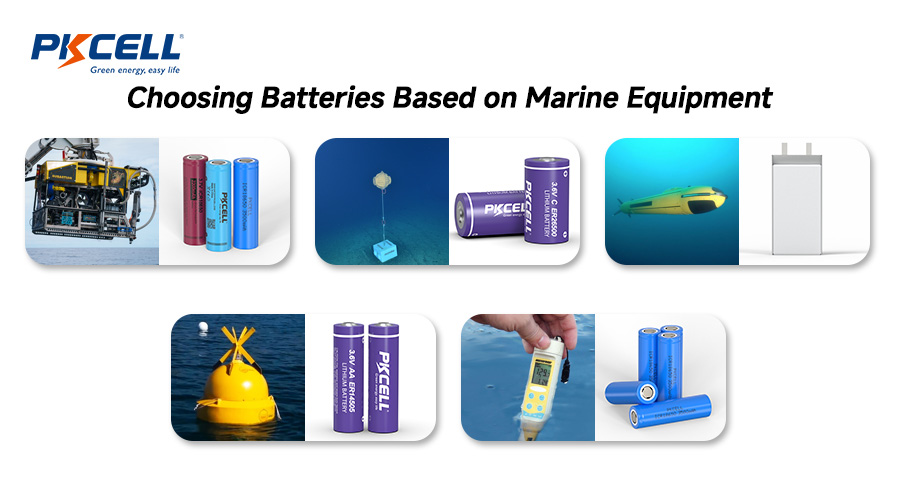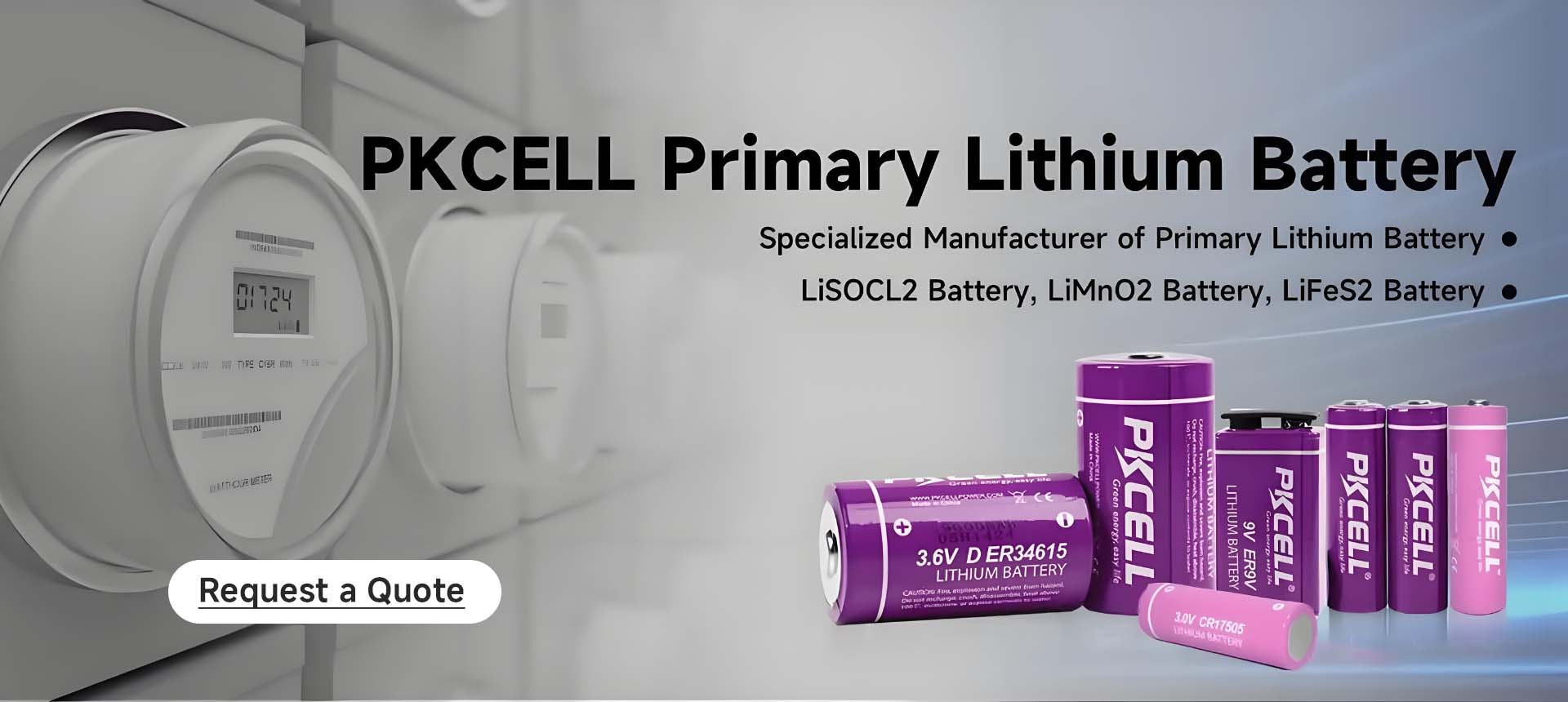Batteries Used in Ocean Equipment
Lithium Batteries
Lithium batteries, including Lithium-ion (Li-ion) and Lithium-polymer (Li-polymer), feature high energy density, long cycle life, and lightweight construction, making them the priority for many marine equipment applications.
Lithium-ion batteries are often used to provide long-time stable power for ocean exploration equipment, Unmanned Underwater Vehicles (UUVs), and Remotely Operated Vehicles (ROVs).
Lithium-polymer batteries are typically found in deep-sea probes and underwater cameras because this type of battery can be manufactured into a soft package, allowing it to better adapt to high-pressure environments.
Lead-Acid Batteries
Though Lead-acid batteries have lower energy density compared to lithium batteries, they stand out for their low cost and mature technology, making them suitable for budget-constrained applications. They are commonly used as the startup battery for small fishing boats, simple buoys, lighthouses, and other maritime navigation aids in coastal areas.
Lithium Thionyl Chloride (Li-SOCl₂) Battery
The Lithium Thionyl Chloride (Li-SOCl₂) battery is a primary (non-rechargeable) lithium battery with extremely high energy density. This battery is characterized by its very low self-discharge rate and exceptionally long shelf and operating life. For this reason, the battery is commonly used in long-term marine monitoring devices, such as deep-sea sediment monitors and ocean ecosystem monitoring sensors. These devices have lower power consumption but require stable, long-term energy from a battery that does not need frequent replacement.
Quote for PKCell Li-SoCl2 Battery
Nickel-Metal Hydride (NiMH) Batteries
NiMH batteries are safer and generally cost less compared to lithium batteries. They exhibit good temperature tolerance, making them suitable for marine equipment that needs to operate stably across a wide temperature range. They can be found in some underwater sensor nodes and compact marine monitoring instruments.
Choosing Batteries Based on Marine Equipment
|
Marine Equipment |
Recommended Battery Type |
| Marine Sonar Buoy | Lithium Thionyl Chloride Battery (Li-SOCl₂) |
| Remotely Operated Vehicle (ROV) | Lithium-ion Battery (Li-ion, NCM/LFP) |
| Autonomous Underwater Vehicle (AUV) | Lithium-Polymer Battery (Li-Polymer) |
| Seabed Fixed Monitoring Station | High-Capacity Li-SOCl₂ Battery |
| Portable Marine Water Quality Monitor | Lithium-ion Battery (18650/21700), Small Soft-Pack Li-Polymer Battery |
Batteries for Other Marine Activities
Lithium batteries are favored by ships. Lithium Iron Phosphate (LFP) batteries, characterized by a long cycle life and stable discharge performance, are suitable for long-term power supply to shipborne electronic equipment, trolling motor systems, and can also be used in ship propulsion systems.
Lithium-ion batteries are mainly used for energy storage and backup power in offshore wind power generation systems. Since offshore wind farms are often far from the mainland, the high energy density and long cycle life of lithium-ion batteries make them an ideal energy storage solution.
Lithium-ion batteries can also be used for power supply and equipment propulsion on offshore oil and gas platforms. Their lightweight and high-efficiency characteristics help reduce the operating costs of offshore oil and gas platforms and improve operational efficiency.
If you have other questions or need help with choosing the right battery for your marine equipment, please contact us now! We also offer customized solutions tailored to your needs!
Post time: Oct-22-2025








